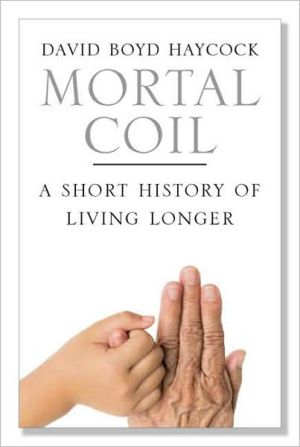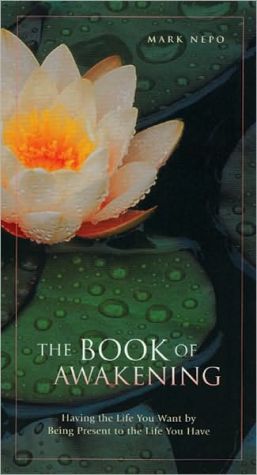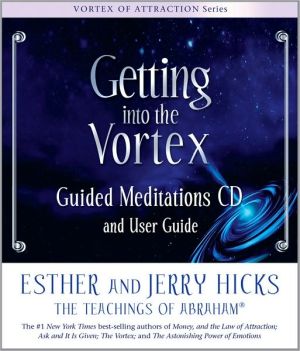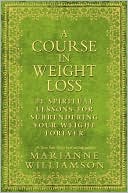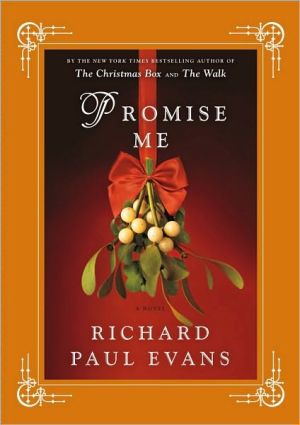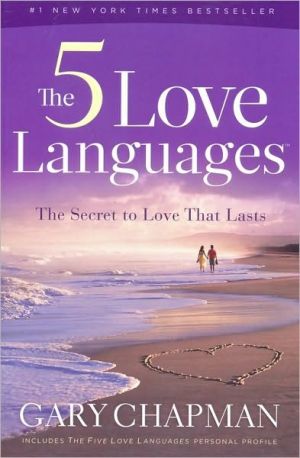Mortal Coil: A Short History of Living Longer
"Mortal Coil explores the medical, scientific and philosophical theories behind the quest for the prolongation of human life. It was a conundrum that intrigued Sir Francis Bacon and underpinned the scientific revolution; ideas of ultimate perfectibility, indefinite progress and worldly rather than heavenly immortality fed directly into the spirit of the Enlightenment and on into the nineteenth and twentieth centuries. In today's world of genetic research, cryonics and nanotechnology, we still...
Search in google:
An obsession with perpetual youth may seem a particularly modern phenomenon, but it is a goal that western scientists and philosophers have aspired to (and worked towards) for the last four hundred years. Mortal Coil explores the medical, scientific, and philosophical theories behind the quest for the prolongation of human life. It was a conundrum that intrigued Sir Francis Bacon and underpinned the scientific revolution; ideas of ultimate perfectibility, indefinite progress, and worldly rather than heavenly immortality fed directly into the spirit of the Enlightenment and even further into the nineteenth and twentieth centuries. In today's world of genetic research, cryonics, and nanotechnology, we still seek the same elusive philosopher's stone.From Adam and Eve to human cloning and designer babies, from seventeenth-century lifestyle guides to science fiction, Haycock's gripping story introduces an array of fascinating individuals—René Descartes, Benjamin Franklin, Jonathan Swift, Charles Darwin, and Sigmund Freud as well as a score of unknown figures. Full of extraordinary stories and valuable insights, this is a curious, witty, and captivating exploration into our unceasing desire to live forever. Publishers Weekly Author Haycock, a Greenwich-based historian of culture and medicine, surveys Western civilization's hopes and schemes for longevity over the past four centuries, beginning with the last days of Sir Francis Bacon (who caught a fatal chill while stuffing a dead chicken with snow, so that its viability "might be long preserved") and ending with Dr. Aubrey De Grey, whose current, controversial research into stem cells, he says, will eventually result in human lifespans of a thousand years or more. Along the way he writes about Benjamin Franklin, who delivered his famous "death and taxes" line just before his death (at 84), the longevity of characters from the Old Testament, Mary Shelley's vision of electric "reanimation," and a huge range of lesser-known figures obsessed with the mystery of the human life span-what's "natural," what's "impossible," what's "normal," and what can be done about it. According to Haycock, now in his 30s, chances are better than ever that he'll live to see the 22nd Century; his own book shows he may have some misplaced optimism, but he also has an entertaining read with lots of fascinating sidelights. Copyright © Reed Business Information, a division of Reed Elsevier Inc. All rights reserved.
\ Publishers WeeklyAuthor Haycock, a Greenwich-based historian of culture and medicine, surveys Western civilization's hopes and schemes for longevity over the past four centuries, beginning with the last days of Sir Francis Bacon (who caught a fatal chill while stuffing a dead chicken with snow, so that its viability "might be long preserved") and ending with Dr. Aubrey De Grey, whose current, controversial research into stem cells, he says, will eventually result in human lifespans of a thousand years or more. Along the way he writes about Benjamin Franklin, who delivered his famous "death and taxes" line just before his death (at 84), the longevity of characters from the Old Testament, Mary Shelley's vision of electric "reanimation," and a huge range of lesser-known figures obsessed with the mystery of the human life span-what's "natural," what's "impossible," what's "normal," and what can be done about it. According to Haycock, now in his 30s, chances are better than ever that he'll live to see the 22nd Century; his own book shows he may have some misplaced optimism, but he also has an entertaining read with lots of fascinating sidelights. \ Copyright © Reed Business Information, a division of Reed Elsevier Inc. All rights reserved.\ \ \ \ \ Library JournalFrom "powdered millipedes in butter" to cryonics, Haycock (curator, 17th-century imperial and maritime studies, National Maritime Museum, Greenwich, England) introduces readers to the life-extending tools and tricks suggested by Western scientists and philosophers from Elizabethan scholar Sir Francis Bacon through today's cutting-edge scientists. Crafting his narrative with scholarly expertise and an engaging sensibility, he includes the characters of the legendary "Old Parr," whose death in 1635 at the alleged age of 152 led to the honor of burial in Westminster Abbey, European alchemists who sought the elixir of life, eugenicists who tried to make humankind into their own intolerant images, surgeons who transplanted monkey glands with the aim of restoring virility to aging alpha males, and contemporary researchers who advocate freezing the dead for future revival or following a rigorous regimen of extreme calorie restriction. Haycock sensibly points out the ethical implications of multitudes, if some claims prove true, of 150-year-old senior citizens crowding the planet and offers time-honored recommendations for regular exercise, weight control, and moderate alcohol consumption. A serious look at an ancient and sometimes peculiar enthusiasm, this is recommended for larger public and academic libraries.\ —Kathy Arsenault\ \ \
